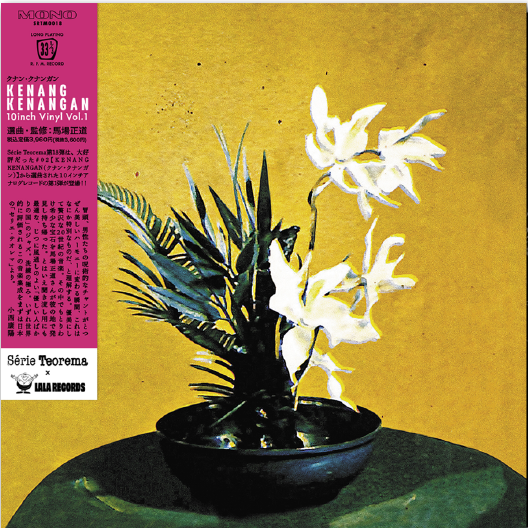From the smoky swing of Jazz to the fiery rhythms of Latin and the polish of Western Pop, Kenang-Kenangan Vol.1 is a genre-blending tribute to how globalization turns borders into bridges, essentially reimagining Indonesian music through a kaleidoscope of cross-cultural sound.
Curated by Masamichi Baba, a passionate archivist and cultural connector, Kenang-Kenangan Vol.1 reflects his ongoing mission to preserve and spotlight rare musical gems from Southeast Asia. Through his extensive personal collection, meticulous curation, and the eclectic venues he operates Baba played a pivotal role in introducing forgotten and undiscovered goods to global audiences, bridging past and present through music. Like a time capsule, Kenang-Kenangan Vol.1 brings you back in time as it transcends the listening experience with obvious cross-cultural sound.
The title of the compilation is taken from the song Kembang Rampai by Corryati, this song uses flowers as a symbol of beauty, love, and the fragrance of the past. Interestingly, “kambang dari batu” implies beauty that emerges from hard or unexpected places—perhaps about love that grows amidst adversity. This track emphasizes on longing and memory “Walaupun sekarang layu, kulagi wangi” indicating that even though something has passed or is not as beautiful as it once was, the memory of it is still fragrant and alive in the heart. Not only that, this track brings out purity and hope.”Jika permai puni suci, mana mata yang ku bawa dari puli” implies a view or memory brought from a pure past—-possibly from one’s hometown, first love, or youth.
What makes this compilation truly captivating is its seamless weaving of global musical influences into a singular, evocative soundscape. For instance, there is a heavy Latin influence on this compilation, evident in the two songs “Lakolai” by Reno and “Mambo Djenaka” by Nien. Lakolai is the epitome of cross cultural exchange, syncopated with a lively, danceable rhythm, accompanied by hand percussion inspired by Latin Jazz or Mambo. This track blends Indonesian traditional vocal storytelling with Latin dance rhythms, 1950s Western Jazz-pop harmonies, and a touch of cabaret-theatrical flair, resulting in a nostalgic yet playful soundscape that feels both regionally unique and retro. Meanwhile, for “Mambo Djenaka” by Nien, the lyrics describe a flirtatious, humorous dance interaction between a young man (teruna) and a stylish woman (gadis). It plays out a cheeky love scene on the dance floor, filled with winks, glances, and awkward, sweet moments. The “mambo jenaka” underscores both the comedic romance and light-hearted tone. “Mambo Djenaka” is a vibrant fusion of Latin mambo rhythms, Indonesian theatrical pop, offering a humorous take on youthful flirtation and dance floor encounters. The blend of syncopated Latin instrumentation with local vocal flair creates a distinctly Southeast Asian reinterpretation of global pop trends of its era.
Kenang-Kenangan feels like a retro portal into the soul of a previous musical era discussing various themes. Social satire and pop culture is notably mentioned as many lyrics satirize fashion trends, youth lifestyles, western imitations, and social change in humorous and sometimes caricatural style. Examples include songs about jengki pants, witty mambo, or “orang gini gak tahu diuntung.” Expanding further, unspoken romance and old love nostalgia is also shining a spotlight on. Lyrics such as “adumah hatiku merasa megah”, “kembang rampai dari batu”, and “air mata jatuh di bantal” convey the pent-up love, unfulfilled hopes and everlasting memories wrapped in old Indonesian poetic language. Lastly, there are also portraits of daily life whether in the village, city, or social gatherings, which are presented poetically and most times absurdly.
Though rooted in a departed era, the themes explored in Kenang-Kenangan Vol.1 remain strikingly timeless, revelaning that human emotion and cultural reflection transcend generations.
Kenang-Kenangan Vol 1 is now available on vinyl via La Munai Records


